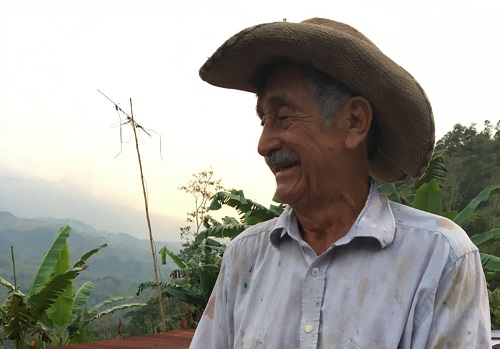It’s easy to eat a chocolate bar without much thought as to where it came from. While the taste of chocolate is sweet, however, often the conditions in which cacao is harvested are the opposite.
Today, there are over 100 million child labourers working in agriculture worldwide, and poverty is the leading cause. Large chocolate corporations and investors are under increased scrutiny to identify human rights issues along the cacao supply chain and act upon them. But the incomes of cacao farmers consistently remain low and child labour is persistent and widespread along the supply chain.
Investors increasingly find themselves at risk for connections to companies linked to child labour, in direct conflict with the UN Guiding Principles on Business and Human Rights, which holds that “Business enterprises should respect human rights. This means that they should avoid infringing on the human rights of others and should address adverse human rights impacts with which they are involved.”
The solution to this problem lies in giving investors other options. Like Choco4Peace, a startup based out of Montreal that is distributing resources where they are needed most: the farmers themselves.
Cote d’Ivoire and Ghana are the world’s leading cacao producers and receive much attention from investors, yet they are home to an estimated two million child labourers. Colombia has the potential to provide investors with another opportunity. Colombia has long been known for its ideal environment for cacao growth, but much of Colombia’s potential cacao crop lies in largely rural, hard-to-access post-conflict regions formerly occupied by the guerrilla groups prevalent before the peace agreement in 2016.
The production of coca, the plant used in cocaine, is most commonly found in many of these post-conflict regions, evidence of the continual effects of Colombia’s many years of violence among illegal armed groups. In Colombia, child labour in illicit activities has led to a vicious cycle of violence and poverty. In coca cultivation, family networks control each stage of cocaine production and are unlikely to hire outsiders. Today, many farmers wish to transition to the production of cacao, but struggle to find other viable sources of income outside of the cocaine industry due to the control of guerrilla groups and lack of external resources.
Persistent problems require innovative remedies. Choco4Peace is looking to one such solution, blockchain technology, to connect investors with farmers in post-conflict regions and to provide them with the resources necessary to make this transition.
Child labour is common in both the coca and cacao supply chains. By discouraging the production of coca and by making integration into the cacao industry a viable option for farmers, Choco4Peace is looking to mitigate child labour in not one, but two sectors. Using hyperledger blockchain technology can create a decentralized, integrated economic network to finance cacao entrepreneurs’ ventures. The use of blockchain creates an opportunity for investors to directly access farmers who would otherwise be deemed too high-risk to be worthy of investment, due to their lack of access to markets, insurance, technology, and their rural and remote location.
The transparency and traceability that blockchain ensures will enable investors to trace the origin of the cacao, and keep the supply chain child- labour and cruelty-free. Farmers, provided with direct access to finance, have the opportunity to successfully transition out of the coca sector and into a sector of decent work, in alignment with UN Sustainable Development Goal 8, “Decent Work and Economic Growth.”
Poverty reduction is the only long-term solution to the use of child labour, as it is it’s primary source. With Colombia’s coca production at an all-time high as of just last year and the increasing expansion of drug trafficking groups’ activity to the inclusion of human trafficking, addressing the effects of illicit activity on Colombia’s population is more urgent than ever.
Choco4Peace’s blockchain solution is threefold: providing farmers with the means to transition from the production of coca diminishes the production of cocaine and helps meet the growing demand for chocolate worldwide. That, in turn, will provide investors with an opportunity to invest in an ethical supply chain. Farmers with the means to sustain themselves and the ability to see traceable returns from investors within Choco4Peace’s economic ecosystem will also be incentivized to provide a sustainable, high-quality supply of cacao for the world to enjoy.
———–
Eva Oakes, a Political Science student at McGill University, has been writing for and working with the Choco4Peace team for over a year. She is currently supporting Choco4Peace from Bogotá, Colombia, where she is studying for the semester. You can follow Choco4Peace’s efforts and learn more about the cacao industry on Twitter (@choco4peace), LinkedIn and Facebook.



How will blockchain stop the cocaine users of cacao from bullying their suppliers not to change and supply socially better users of their cocoa?